
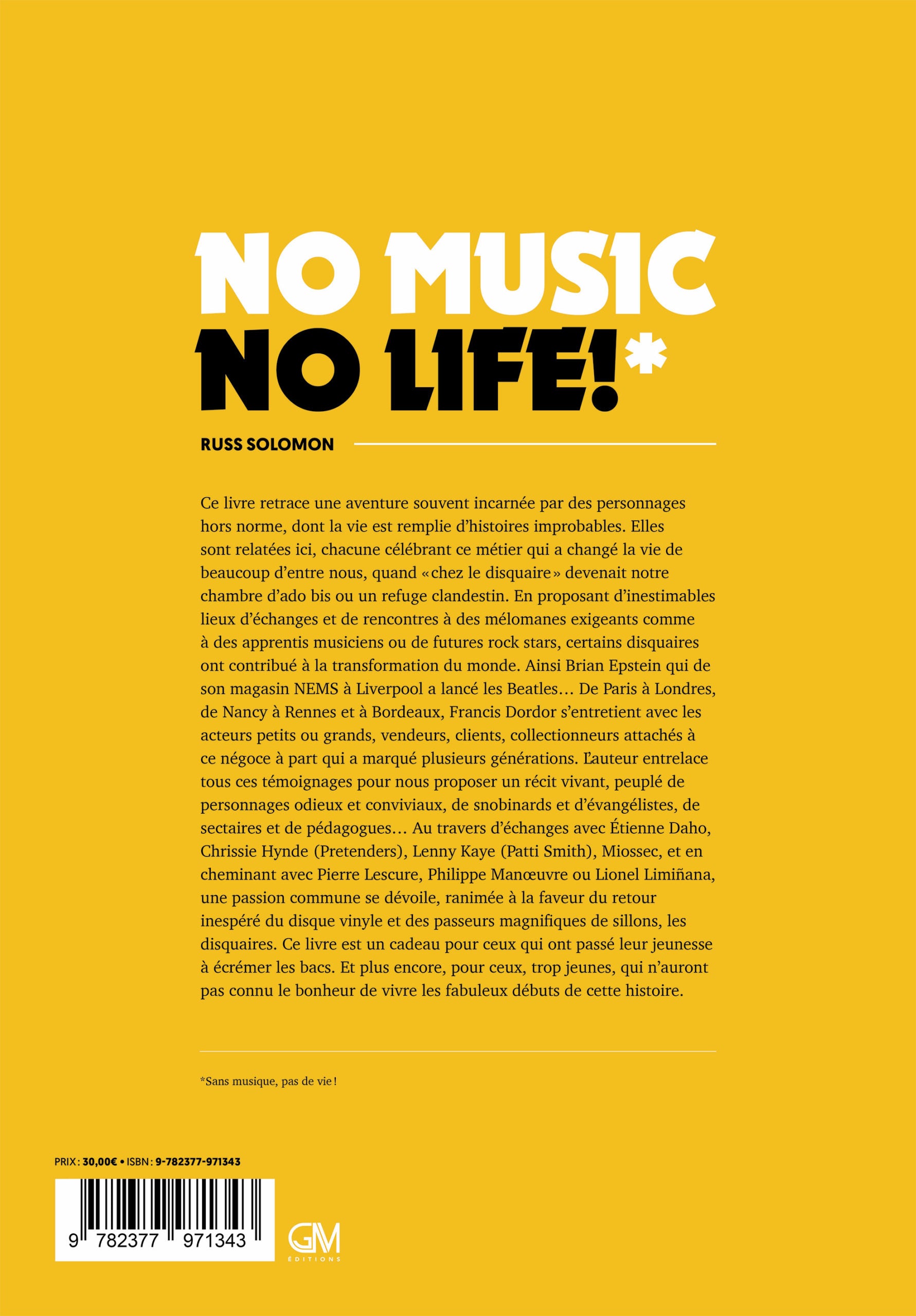

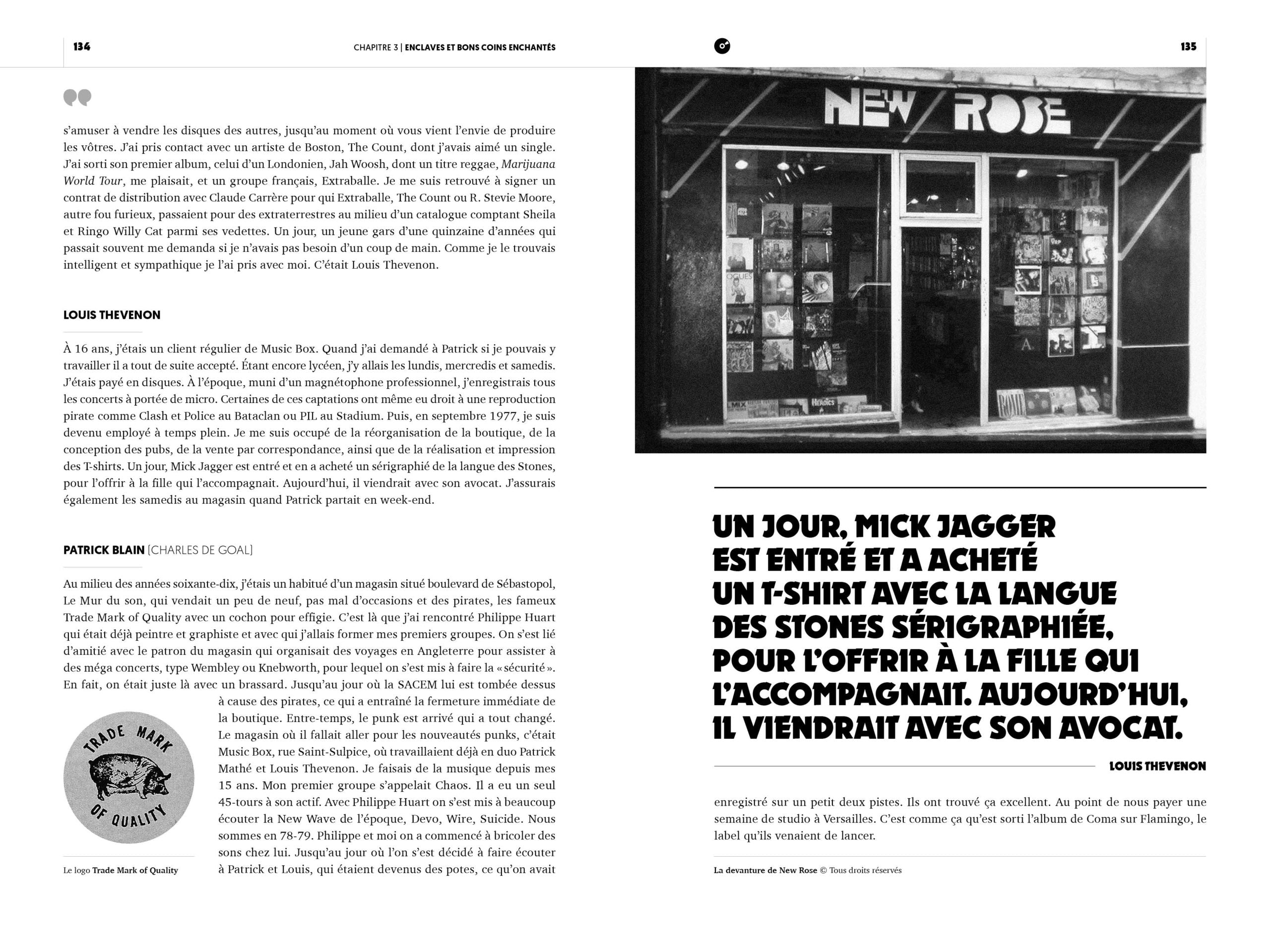
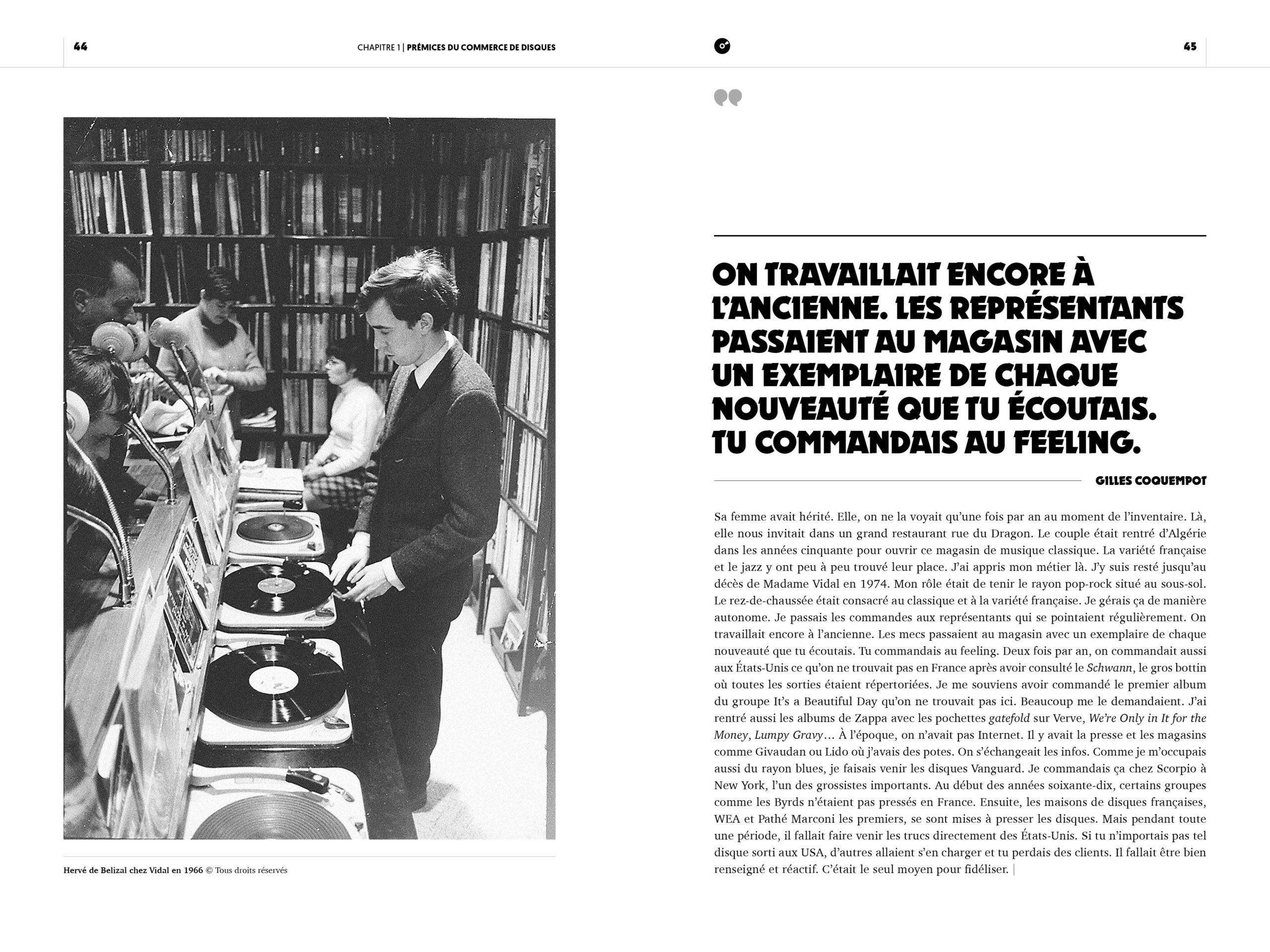
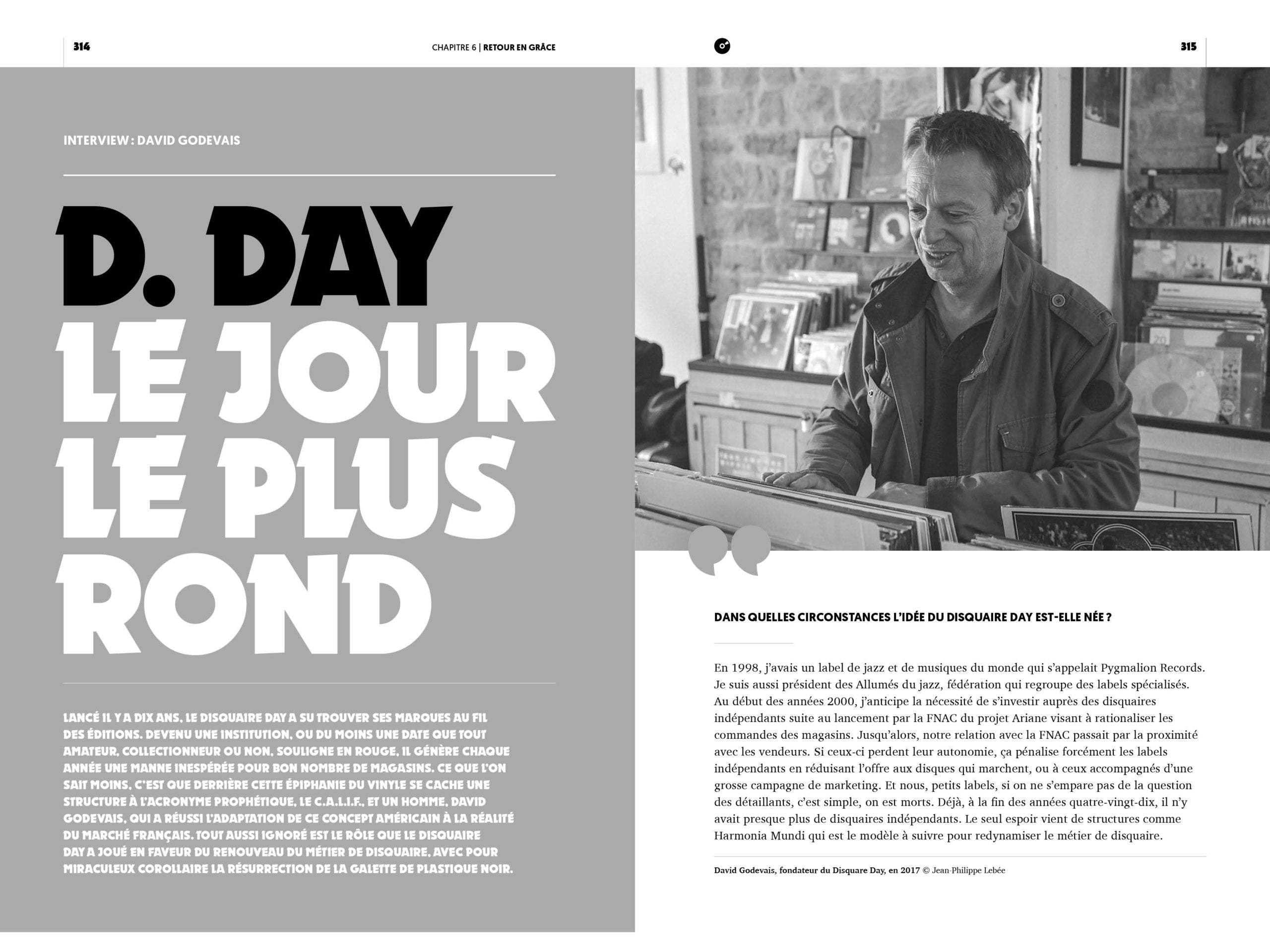
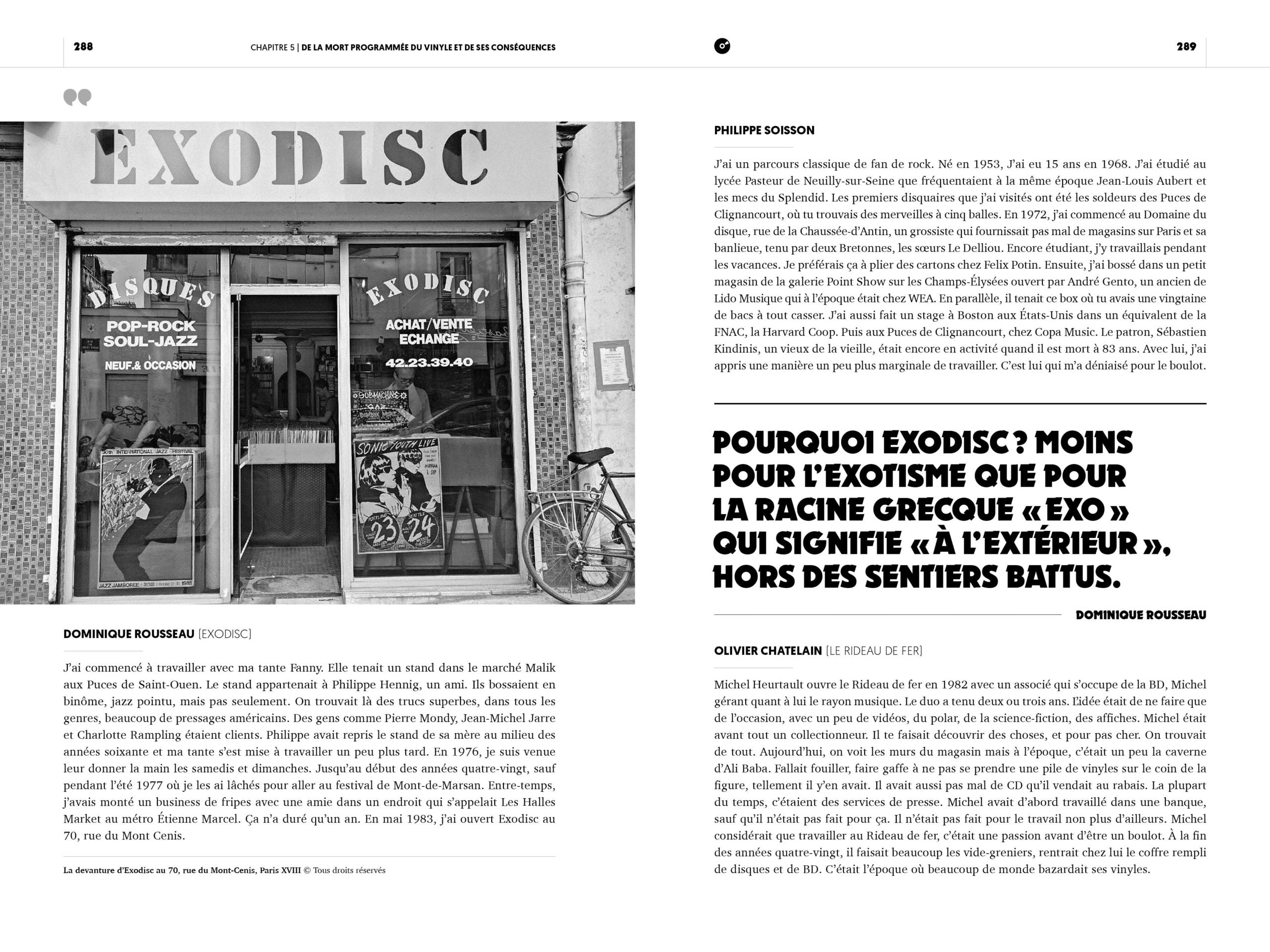
Record stores, a history - Francis Dordor
Description
Record stores, a history. This book recounts an adventure, that of an activity like no other, often embodied by extraordinary characters. And whose life is filled with improbable stories. They are recounted here, each celebrating this profession that has changed the lives of many of us. By offering invaluable places of exchange and encounters to demanding music lovers as well as to apprentice musicians, some record stores have contributed to the transformation of the world. For example, Brian Epstein who from his NEMS store in Liverpool launched the Beatles...
The history of record stores from Paris to Rennes, from Nancy to Nantes, from London to Bordeaux. Many record stores have helped to give birth to new musical trends and the groups that shaped them. From Étienne Daho to Chrissie Hynde (Pretenders), from Lenny Kaye (Patti Smith) to Miossec via Pierre Lescure and Philippe Manœuvre, the author talks with the small and large players, sellers, customers, collectors attached to this unique business that has marked several generations. He tells the lively story of a shared passion rekindled by the unexpected return of the vinyl record. And its essential groove-carriers, the record stores.
Preface
Of course, the number of these places of pleasure has continued to decrease over the decades. This is due to the supremacy of large stores with their plethora of shelves and more attractive prices; then to the disaffection experienced by the entire sector with the arrival of downloading. In England, there were 1,000 shops at the beginning of the 2000s. Only half are still in business today. Even if at the same time new ones have opened. In France, in 2019, there were still around 300 independent stores out of around 3,000 physical points of sale. That is 10% where 51% of music purchases are still made. Proof of the courage of a practice that seemed fairly obsolete and forever condemned, a bit like going to get milk from the farm.
This resistance alone is worth looking back at what can be considered a golden age, which ran from the early sixties to the mid-eighties...
Informations

